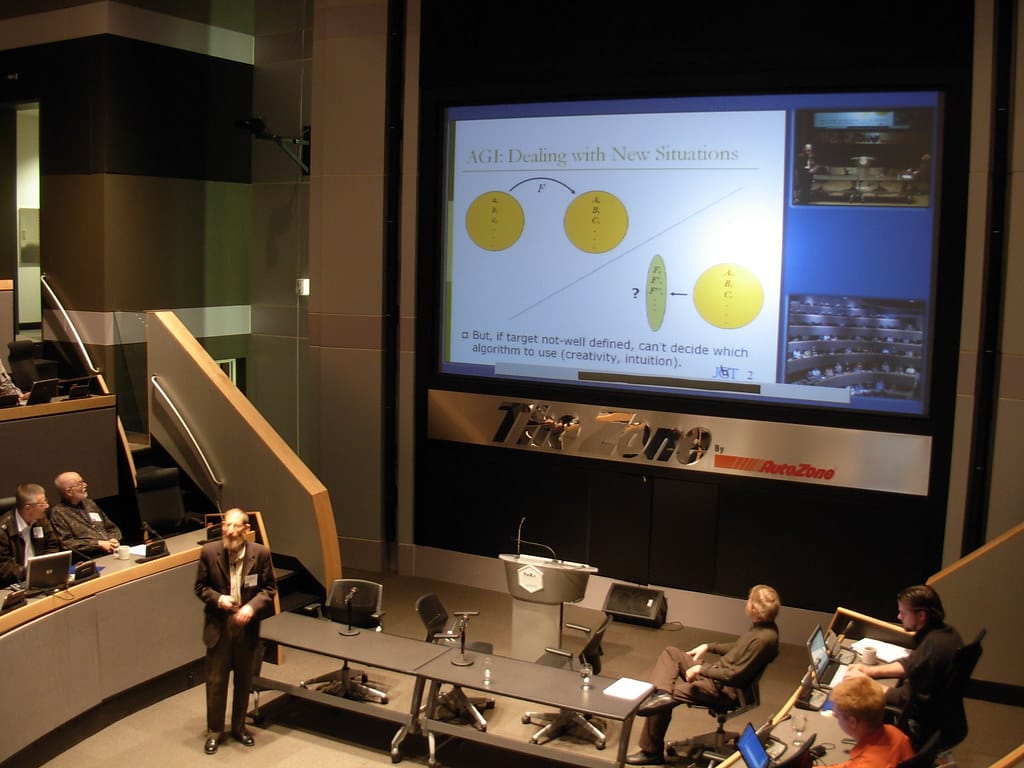The AGI Dilemma: How Defining Artificial General Intelligence is Fracturing Tech's Biggest Partnership
The most important question in artificial intelligence isn't technical—it's definitional. What exactly constitutes Artificial General Intelligence (AGI), and why is this seemingly academic debate threatening to tear apart the tech industry's most consequential partnership?
Microsoft and OpenAI, once aligned in their mission to develop safe and beneficial AI, now find themselves at odds over a fundamental question that could reshape the future of technology. The disagreement isn't just philosophical—it carries massive financial and strategic implications that are sending shockwaves through Silicon Valley.
The Billion-Dollar Definition Problem
At the heart of the conflict lies a deceptively simple question: when can we say we've achieved AGI? Microsoft has invested over $13 billion in OpenAI, with agreements tied to specific AGI milestones. But without a clear definition, how do we know when we've crossed that line?
OpenAI's charter defines AGI as "highly autonomous systems that outperform humans at most economically valuable work." Microsoft, however, appears to favor a more technical definition focused on specific benchmarks and capabilities. This isn't just semantic hairsplitting—it determines when OpenAI can break free from its exclusive partnership with Microsoft and pursue independent commercialization.
The stakes couldn't be higher. Once AGI is achieved, OpenAI's licensing agreements with Microsoft fundamentally change, potentially ending Microsoft's exclusive access to OpenAI's most advanced models and allowing the AI company to license its technology to competitors.
The Expert Divide
The broader AI community remains equally divided. Some researchers argue that AGI requires human-level performance across all cognitive tasks—a bar that current systems are nowhere near clearing. Others contend that today's large language models like GPT-4 already demonstrate AGI-like capabilities in many domains.
Dr. Yann LeCun, Meta's chief AI scientist, has argued that current AI systems lack the fundamental reasoning and planning capabilities required for true AGI. Meanwhile, OpenAI's own researchers have suggested that GPT-4 shows "sparks of AGI" in its ability to handle diverse tasks without specific training.
This disagreement extends beyond academia into corporate boardrooms. Google's DeepMind has proposed its own AGI framework based on five levels of capability, while Anthropic focuses on AI safety metrics that must be met before AGI can be considered achieved.
Commercial Implications
The definitional battle has immediate commercial consequences. If OpenAI declares AGI achieved with its next major model release, it could fundamentally alter the competitive landscape. Microsoft would lose its exclusive access to cutting-edge AI technology, potentially allowing competitors like Google, Amazon, and Meta to license advanced AI capabilities directly from OpenAI.
This scenario has reportedly led to heated discussions between Microsoft executives and OpenAI leadership. Microsoft has significant leverage through its Azure cloud infrastructure, which powers OpenAI's models, but OpenAI holds the key intellectual property that makes the partnership valuable.
Industry analysts suggest that the definitional dispute may be a negotiating tactic, with both companies positioning themselves for future partnership terms. The original agreements, signed when AGI seemed like a distant possibility, may not adequately address the reality of rapid AI advancement.
The Regulatory Dimension
The AGI definition debate extends beyond corporate partnerships into regulatory territory. Government agencies worldwide are developing AI governance frameworks, but without consensus on what constitutes AGI, creating effective oversight becomes nearly impossible.
The EU's AI Act, the Biden administration's AI executive order, and similar international initiatives all reference AGI or general-purpose AI systems, but rely on vague definitions that could be interpreted differently by various stakeholders.
Looking Forward
As AI capabilities continue to advance at breakneck speed, the pressure to resolve the AGI definition question will only intensify. The outcome will determine not just the future of Microsoft and OpenAI's partnership, but the entire trajectory of AI development and commercialization.
The current disagreement reveals a fundamental challenge facing the AI industry: how do we govern and commercialize technologies that are evolving faster than our ability to understand or define them? The answer may ultimately determine whether AGI emerges from collaborative partnerships or competitive races.
For now, the tech industry watches as two of AI's most powerful players navigate a definitional minefield that could reshape the future of artificial intelligence. The stakes are too high for either side to blink first.

